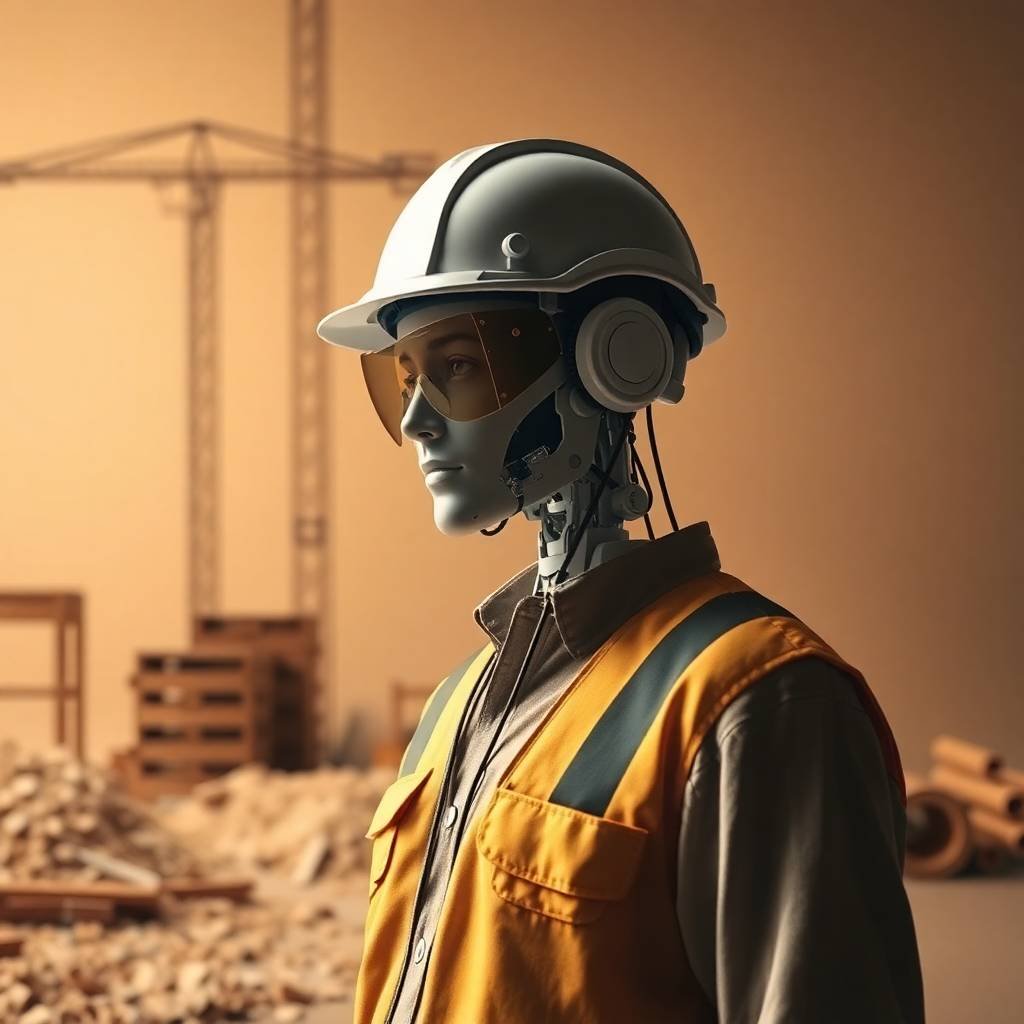Artificial Intelligence (AI) is poised to revolutionize the construction industry by enhancing productivity, improving safety, and driving innovation. As AI technologies continue to advance, they offer new possibilities for transforming how construction projects are planned, executed, and managed. From design and planning to construction and maintenance, AI is becoming an integral part of the construction landscape, promising to address longstanding challenges and unlock new levels of efficiency and sustainability.
The Evolution of AI in Construction
Early Innovations
- Project Management Tools: Initial AI applications focused on improving project scheduling and resource allocation, helping managers keep projects on track and within budget.
- Design Automation: Early AI tools assisted architects and engineers in creating building designs with greater precision, enabling more efficient use of materials and time.
Current Trends
- Robotics and Automation: AI-driven robotics are increasingly used for tasks such as bricklaying, concrete pouring, and welding, enhancing efficiency and reducing the need for manual labor on construction sites.
- Predictive Analytics: AI is employed to forecast project timelines, costs, and potential risks, allowing for better decision-making and proactive problem-solving.
Applications of AI in Construction
Design and Planning
- Generative Design: AI algorithms generate multiple design options based on specified criteria, allowing architects and engineers to explore innovative and optimized building designs.
- BIM Integration: AI enhances Building Information Modeling (BIM) by providing insights into design feasibility, clash detection, and project coordination, leading to more efficient planning.
Construction and Operations
- Autonomous Machinery: AI controls machinery such as bulldozers and excavators, reducing the need for manual labor and improving precision and efficiency on construction sites.
- Safety Monitoring: AI-powered systems monitor construction sites for safety hazards, helping to prevent accidents and ensure compliance with safety regulations.
Maintenance and Facility Management
- Predictive Maintenance: AI predicts equipment failures before they occur by analyzing data patterns, which reduces downtime and maintenance costs through proactive intervention.
- Energy Optimization: AI systems optimize energy use within buildings by adjusting settings based on real-time data, contributing to sustainability and cost savings.
Benefits of AI in Construction
Increased Efficiency
- Time Savings: AI streamlines processes by automating routine tasks and improving coordination, which helps reduce project timelines and accelerates delivery.
- Cost Reduction: Automated processes and predictive insights help minimize waste, optimize resource allocation, and control project costs, resulting in significant savings.
Enhanced Safety
- Real-Time Monitoring: AI systems provide continuous safety monitoring of construction sites, alerting workers to potential hazards and reducing the risk of accidents.
- Risk Mitigation: By analyzing data, AI helps identify and mitigate risks before they become critical issues, ensuring safer work environments for construction teams.
Challenges and Ethical Considerations
Workforce Impact
- Job Displacement: The rise of automation may lead to concerns about job losses within the construction industry as machines take over certain tasks traditionally performed by humans.
- Skill Development: Workers will need to adapt by acquiring new skills to work alongside AI technologies, emphasizing the importance of ongoing training and education.
Data Privacy and Security
- Confidentiality: Protecting sensitive project data from unauthorized access is crucial as AI systems become more integrated into construction operations.
- Cybersecurity Threats: Ensuring AI systems are secure from cyberattacks is essential to maintain the integrity and security of construction projects.
By addressing these challenges, the construction industry can responsibly integrate AI, maximizing its benefits while minimizing potential drawbacks.
Future Outlook
Innovations on the Horizon
- AI-Driven Smart Cities: The integration of AI into urban planning and infrastructure development promises to create more efficient, connected, and sustainable cities that cater to the needs of growing populations.
- Advanced Robotics: Future advancements in AI and robotics will further enhance automation capabilities on construction sites, enabling more complex tasks to be performed with greater precision and efficiency.
AI holds the promise of transforming the construction industry by improving efficiency, safety, and sustainability. As the technology continues to evolve, embracing these innovations will be key to building a more innovative and resilient industry, ready to meet the challenges of the future.
Conclusion
AI is set to play a transformative role in the construction industry, offering unprecedented opportunities to enhance efficiency, safety, and sustainability. By streamlining processes, reducing costs, and improving safety measures, AI provides a competitive edge to construction companies willing to embrace innovation. However, addressing challenges related to workforce adaptation, data privacy, and security is crucial to ensuring responsible integration. As AI technology continues to evolve, the construction industry stands on the brink of a new era, where smart cities and advanced robotics redefine the possibilities of what can be built and how it can be achieved.

